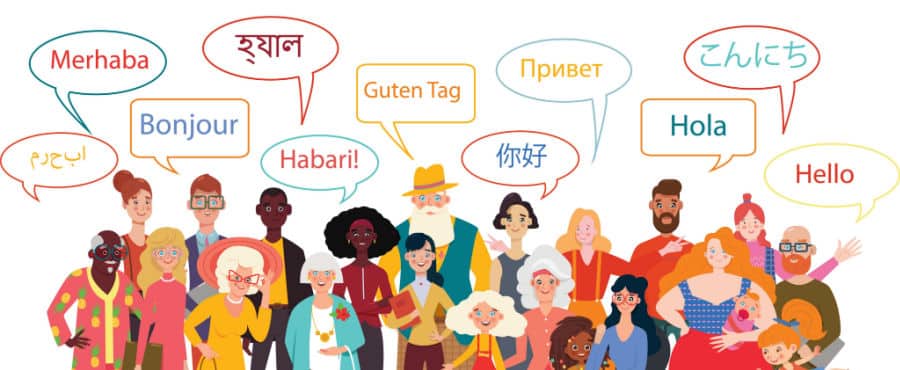Table of Contents
- What is Multilingual SEO?
- Why is Multilingual SEO Important?
- 4 Benefits of Multilingual SEO?
- 4 Multilingual SEO Best Practices
- Get Multilingual SEO Advice from CadenceSEO
Are you a website owner who is looking to expand your reach and increase sales? If so, it’s important that you consider multilingual SEO. The term “multilingual SEO” is applied to marketing activities related to helping businesses reach the largest possible Internet audience with their products, services, and content. Get it right, and this can be the most cost-effective, traffic-driving factor in your SEO strategy.
In this article, we will explore what multilingual SEO is, why it’s important, the benefits of having a website in multiple languages, and best practices for making sure your site has an international audience in mind.
What is Multilingual SEO?
Multilingual SEO is the practice of optimizing your website for search engines and creating content that is accessible to users in different languages.
- For example:
if you’re trying to sell an English product to a French audience, you’d want to make sure your website is set up to rank well for French-language searches.
The term “multilingual” refers to the presence of multiple languages on a single website, and it can include two or more languages. A “multiregional” website is one that serves customers in multiple geographic regions, such as Europe and North America, or different countries within the same region.
Multilingual SEO is often used to increase international traffic to a website. If you have customers who speak multiple languages, multilingual SEO can help reach them through their preferred language.
Why is multilingual SEO important?
If you’ve ever been to a country that speaks another language, you know how wonderful it is to communicate with people who don’t speak your native tongue.
But what if you could use that same sense of wonder in your marketing? What if you could increase your reach, improve the customer experience, and make your business more successful by serving customers in their own language? That’s the power of multilingual SEO.
Multilingual SEO is the practice of optimizing content for multiple languages. It’s not just about translating text into other languages—it’s about tailoring your content to suit each audience and market.
For example, if you’re an American company selling fruit juice and smoothies, it makes sense to have a landing page for each country where you do business. That way, when someone searches for “juice” or “smoothie,” they’ll get the information they need in their own language—and they’ll understand what they’re looking at.
Multilingual SEO is important for many reasons, but the most obvious is that it’s just good business. If you’re not serving your target audience in their native language, you’re not going to reach them as effectively. That means lost sales, missed opportunities, and many other problems.
4 Benefits of Multilingual SEO
With the rise of digitalization, it’s becoming more and more important to have a digital presence. If you want to reach out to new customers, digital marketing is a great way to do so. But if your website is only available in one language, then you’re missing out on opportunities.
To have a successful digital presence, you need to optimize your website for search engines. Many people think that this process is easy and straightforward. However, there are many things that should be considered when optimizing your website for search engines. One of those things is multilingual SEO.
So, what are the benefits of multilingual SEO? Well, here’s a quick rundown:
1. Increased search visibility
Multilingual SEO can help you increase your search visibility by helping you reach people who speak a language that is not their first language. This means that people who only speak English may not be able to find your site if they’re looking for something in Spanish or French. By making your site available in other languages, you’re increasing the chances that someone who speaks that language will find it through search engines.
2. Increased revenue from international traffic sources
Multilingual SEO can increase revenue from international traffic sources by allowing users who speak another language an easier time navigating through and purchasing products on your site. If someone is looking for something in another language on Google or Bing (or any other search engine), they will see results in their native language first—even if those results aren’t as relevant as yours would be!
3. Increases conversion rates
If your site is multilingual, your visitors who speak another language will have an easier time finding what they’re looking for and converting. This is because they can find what they’re looking for more quickly and easily, which will increase conversion rates. Improves your brand image. If you want to increase brand awareness, multilingual SEO is a must. When someone searches for your brand in another language, it shows them that you care about their needs and understand them as people.
4. Improves SEO rankings
If your site is in another language, it will likely rank higher than other sites that are only in English. This is because search engines typically give preference to websites that have pages and content written in their native language—so having a multilingual site can improve your rankings on these platforms.
u;timately, SEO is a complex process, and one of the most important factors for success is language. It’s no secret that the internet is a global phenomenon, and that if you want to reach your target audience, you need to do it in their native tongue.
4 Multilingual SEO Best Practices
Multilingual SEO is a complex process, but it’s essential to the success of your business. If you’re targeting a global audience, you need to ensure your website is available in all the languages you’re targeting. This means that if you have a Japanese-language site, there should be no barriers between Japanese-speaking customers and their ability to find what they’re looking for and convert on your site.
1. Make sure your website is available in all the languages you’re targeting
Your website needs to be translated well and easy to navigate. You can use Google Translate, but it’s not a great solution. You should hire a professional translator and make sure the translation is correct before publishing. Also, be sure to check your website after the translation is complete to make sure everything looks right. You don’t want customers struggling with broken hyperlinks or finding themselves on an entirely different site when they click on something.
2. Set up redirects for each language-specific page
Set up redirects for each language-specific page on your site, so that users do not get lost after clicking on an external link (like on social media). This will make it easier for search engines to crawl your entire site and find the content in each language. Use the same keywords for each language-specific page. You don’t want your users to get different results based on what language they’re using, so keep the keywords consistent across all your pages.
3. Use keywords that are relevant in other languages
Use keywords that are relevant in other languages when optimizing content, so that it shows up higher in search results across multiple countries or regions where those keywords might be searched more frequently than others. Use the same URL structure for each language-specific page
4. Use the same URL structure for each language-specific page.
This will make it easier for search engines to crawl your entire site and find the content in each language. Keep the keywords consistent across all your pages. You don’t want your users getting different results based on what language they’re using, so keep the keywords consistent across all of your pages.
Even if you’re not interested in expanding your company’s reach to other countries, multilingual SEO can be beneficial. By optimizing your website for different languages and locales, you can attract more visitors from around the world—all without having to pay for international ads or hire translators. The bottom line is that it’s worth taking advantage of this powerful tool if you want your business to succeed online.
Get Multilingual SEO Advice from CadenceSEO
Are you looking for a multilingual SEO expert? Look no further than CadenceSEO! Our team of experts can help you with your website in any language, and we offer free consultations so you can get started.
CadenceSEO is a digital marketing agency focused on helping clients achieve their goals. Whether you’re looking to grow your company, attract new customers, or just get more traffic, we can help you reach your goal with our proven methodologies and extensive experience. If you’re interested in learning more about how we can help your business grow and succeed globally, please contact us today!






